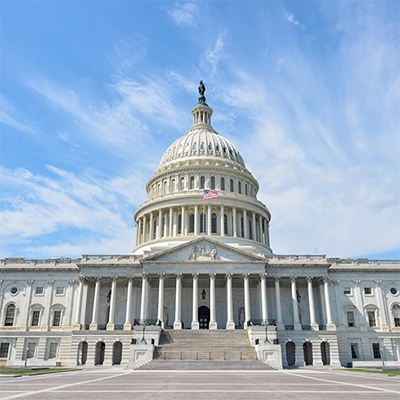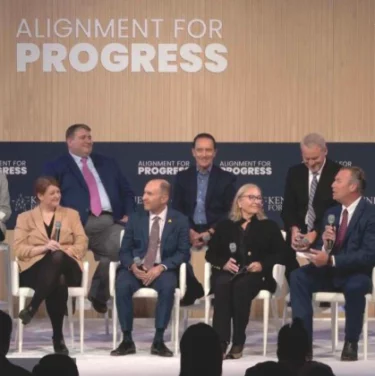Many people struggle to find mental health and substance use treatment, despite the overwhelming and well-documented need for services.
The Bipartisan Safer Communities Act provides the best opportunity in decades to eliminate the barriers that make it so hard for people to access that care.
This profoundly important new law is the result of the thoughtful, deliberate efforts of Senate negotiators including Sen. Chris Murphy (D-Conn.) and Sen. John Cornyn (R-Texas), who took the lead in writing the legislation. Our tireless advocates in the Senate, Sen. Debbie Stabenow (D-Mich.) and Sen. Roy Blunt (R-Missouri), also deserve an enormous amount of credit for raising awareness on the Hill about the need to expand access to care.
The legislation, signed into law on June 25, provides funding to increase access to comprehensive mental health and substance use services, notably through expanding Certified Community Behavioral Health Clinics (CCBHCs) across the country. Integrated with primary care and coordinated with other social service providers, CCBHCs reduce wait times, expand capacity to address the overdose crisis and establish innovative partnerships with law enforcement, schools and hospitals to improve care, reduce recidivism and prevent hospital readmissions.
The bill also includes funding to broaden access to telehealth services and in-school intervention programs such as Mental Health First Aid (MHFA) and provides additional funding for the National Suicide Prevention Lifeline ahead of 988 implementation date, on July 16. More funding for 988 will help improve the capacity of our crisis care system.
These investments will forever change how people access mental health and substance use treatment in their communities.
The National Council released a study on May 31 that clearly illustrated the crippling impact of barriers to access. While 43% of U.S. adults who say they needed substance use or mental health care in the past 12 months did not receive that care, just 21% of those who needed primary care and did not receive it, according to data from the new report.
There is no health without mental health, and we can do better. The Bipartisan Safer Communities Act will eliminate barriers to access so people can lead healthier lives. Everyone deserves the opportunity to achieve mental wellbeing and reach their full potential despite a mental health or substance use challenge.
It’s also important to understand what the bill won’t do. Expanding access to care likely won’t do much to reduce gun homicides because the vast majority of people with mental illness will never become violent. Many people have tried to draw a connection between the awful massacre in Uvalde, Texas, and mental illness.
But there often is no link. In a 2019 paper, Mass Violence in America: Causes, Impacts and Solutions, experts with the National Council’s Medical Director Institute found very little connection between mental illness and violence. Specifically:
- Mental illness does not automatically make a person high risk for perpetrating mass violence. However, the nature of their symptoms may increase the potential for such behaviors.
- People with serious mental illness (schizophrenia and bipolar disorder) are responsible for less than 4% of all violence and 25% to one-third of mass violence. Most people who commit mass violence do not have a serious mental illness.
- It is not possible to accurately and specifically project which individuals will commit mass violence, but it is possible to prevent mass violence using broader interventions.
In other words, mental illness is neither a sole cause of mass violence nor a necessary cause of violence and does not affect many cases, according to the Medical Director Institute, which prepared the Mass Violence in America study. There are many cases with no clear causation link between a person’s symptoms and the mass violence perpetrated, the study found.
Mass violence is caused by many social and psychological factors that interact in complex ways. Many, if not most, perpetrators do not have a major psychiatric disorder. Hate is a social and moral problem, not a common symptom of mental illness.
Most importantly, most people with diagnosable mental illnesses are not violent toward others. Having a psychiatric diagnosis is neither necessary nor sufficient as a risk factor for committing an act of mass violence. That’s why it’s so important to set the record straight on the perceived connection between mental health and violence.
The Bipartisan Safer Communities Act makes much-needed investments in mental health and substance use treatment and it included important efforts to reduce gun violence. The pandemic has fueled our nation’s mental health crisis and led to a frightening increase in overdose deaths.
The challenge we face is eliminating barriers to access so people can receive the treatment they need. The Bipartisan Safer Communities Act will help us achieve that elusive goal.
If you’re experiencing a mental health crisis, call the National Suicide Prevention Lifeline at 1-800-273-8255 (TALK). The hotline is available 24 hours per day.




